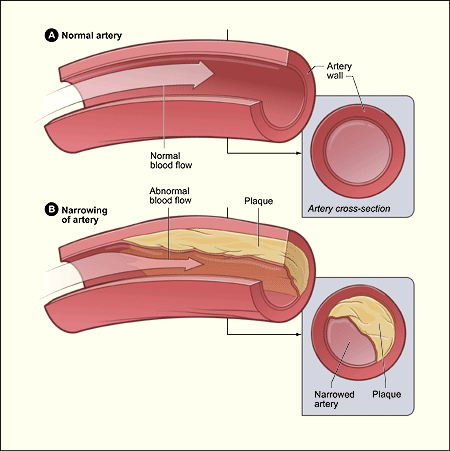Top Tips: How to Lower Your Cholesterol Level Without Using Medication

Cholesterol is a fatty substance which is vital for the normal functioning of your body. Your body makes all the cholesterol it needs.
There are two types of cholesterol. Excess ‘bad’ cholesterol (LDL) can build up on your blood vessel walls causing narrowing/blockages, increasing your risk of heart attacks and strokes even if young. Yet ‘good’ cholesterol (HDL) helps your body by carrying excess cholesterol to the liver for removal from the body.
Lifestyle factors which cause high cholesterol levels include excessive consumption of saturated fats and alcohol, smoking, lack of exercise and obesity.
So how can you reduce your risk and improve your cholesterol levels? Medicines called Statins can certainly help, especially in people who already have heart disease, diabetes or stroke risk factors. However, here we present some dietary and lifestyle tips which can be equally effective, without the need to take medication.
1. Fabulous Fibre – Soluble fibre sources found in dietary supplements such as Pectin, Guar Gum and Psyllium reduce ‘bad’ cholesterol by helping your liver to remove fat from the blood stream.
2. Plant Power – Plant sterols and stanols are substances found in grains, vegetables, fruits, legumes, nuts and seeds. However, to have a real effect, you will need to take these in the concentrated form of supplements. They are thought to help by preventing cholesterol absorption in the gut.
3. Up The Good Fats – Remember that some fats are good for you. Polyunsaturated fats in soybeans and sunflower oils, and also omega-3 oils in fatty fish have been shown to reduce ‘bad’ cholesterol, and they can even increase ‘good’ cholesterol.
4. Bin the Bad Fats – The fat in your diet should make up less than a third of your daily intake (and of this only 10% should be saturated fats). Be sure to reduce your intake of processed foods which often contain very harmful trans fats (eg biscuits, cakes and pastries) and also reduce your intake of saturated fats (eg full fat dairy products, fatty meats, pies, crisps, chocolate)
5. Delicious Diets – All of above elements are more effective if combined together which occurs in certain healthy diets such as the Portfolio Diet, Mediterranean and Dash diets.
6. Helpful Herbs – Some herbal treatments and foods can reduce cholesterol, such as fenugreek, artichoke, aubergine and yarrow. Please always consult your doctor if considering taking regular herbal supplements, particularly if you have any health conditions (especially kidney or liver problems), are taking prescription medication or if you are trying to conceive, pregnant or breastfeeding.
7. Quit Smoking – A chemical in cigarettes stops ‘good’ cholesterol from working and therefore leads to even faster narrowing of your arteries.
8. Get Moving – Exercise can reduce your cholesterol levels. Current recommendations are 30 minutes, five times a week. However moderate to vigorous exercise taken regularly at any reasonable level can significantly reduce your risk of heart disease.
You will find that you really can make a significant reduction to your cholesterol level by implementing changes from the list above. At The Walcote Practice, our doctors will be pleased to provide you with support and to monitor your cholesterol level. To book an appointment please call 01962 828715.


